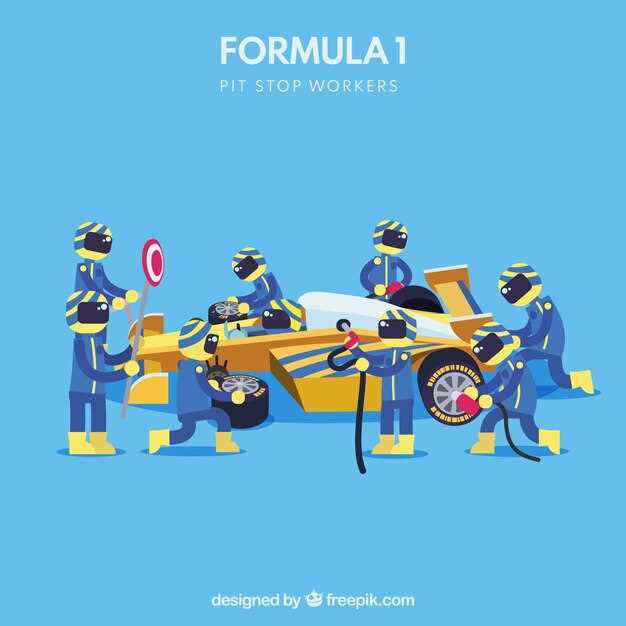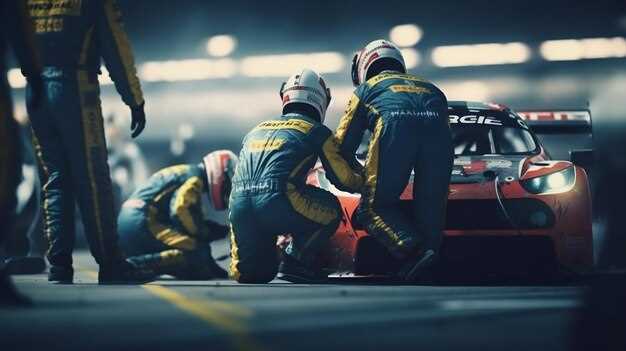How VW Motorsport Is Adapting to New Regulations

The world of motorsport is a dynamic environment, constantly evolving in response to new technologies and regulatory demands. For Volkswagen (VW) Motorsport, staying at the forefront of racing requires not only a commitment to innovation but also a keen understanding of the shifting landscape of racing laws. As governing bodies implement new regulations aimed at enhancing safety, environmental sustainability, and competitive fairness, VW has made strategic adjustments to its racing programs to align with these requirements.
In recent years, the introduction of stringent emissions standards and safety protocols has prompted the automotive giant to rethink its racing strategies. VW’s response to these latest racing regulations is not just about compliance; it reflects a broader commitment to the future of motorsport. By integrating advanced engineering solutions and leveraging sustainable technologies, VW aims to not only adhere to racing laws but also set a benchmark for competitors.
As VW Motorsport navigates the complexities of modern racing, its adaptability will be key to maintaining a competitive edge. The latest regulations pose challenges, but they also present opportunities for innovation. In embracing change, VW is not only ensuring its relevance in the racing world but also contributing to the evolution of motorsport as a whole.
Understanding the Latest Racing Laws Impacting VW Motorsport

The landscape of motorsport is continually evolving, and VW Motorsport must stay ahead by adapting to the latest racing regulations. Recent changes in racing rules have significant implications for vehicle specifications, safety requirements, and competitive practices.
One of the most critical areas affected by these laws is vehicle performance standards. New regulations aim to equalize competition among manufacturers, fostering a more level playing field. For VW, this means re-evaluating engine configurations, weight distributions, and aerodynamic features to comply with enhanced performance criteria without compromising on reliability.
Additionally, safety regulations have become increasingly stringent. New laws mandate improvements in crash safety protocols and driver protection systems. VW Motorsport is dedicated to ensuring that all its racing vehicles meet these safety benchmarks, which includes integrating state-of-the-art materials and technologies into race car designs.
Environmental considerations are also shaping the current racing rules. Stricter emissions standards and a push towards sustainable racing alternatives compel VW to explore hybrid and electric technologies. This transition not only aligns with regulatory demands but also reflects the automotive industry’s broader shift towards sustainability.
In summary, the latest racing laws require VW Motorsport to adapt its strategies across multiple dimensions, from vehicle engineering to safety compliance and environmental stewardship. Continuous assessment of these regulations is essential for maintaining a competitive edge and ensuring successful participation in future racing events.
Key Adjustments to VW Racing Rules and Their Implications

The recent revisions to VW’s racing regulations introduce critical changes aimed at enhancing competition while adhering to new environmental laws. One of the most significant adjustments is the implementation of stricter limits on vehicle weight and aerodynamics, which are now designed to create a more level playing field among competitors. This shift reflects an emphasis on promoting technical innovation within the confines of the revised rules.
Additionally, the introduction of hybrid powertrains has become mandatory, aligning VW with the broader automotive industry’s push towards sustainability. This move not only fulfills environmental regulations but also serves to engage fans who are increasingly passionate about eco-friendly technologies. As teams adapt to these new power sources, they face a dual challenge of maintaining performance while adhering to the new energy consumption rules.
Furthermore, the adjustments to tire specifications aim to balance performance with durability, influencing race strategies significantly. Teams are now required to optimize tire usage while considering their impact on overall race outcomes, reshaping traditional approaches to pit stops and race tactics.
In conclusion, these key adjustments to VW racing rules carry substantial implications for teams and their strategies. The new regulations not only foster competition but also reflect a commitment to sustainability and innovation, setting a precedent for how motorsport can evolve in response to contemporary challenges.
How VW Motorsport Plans to Comply with New Technical Standards
In response to the evolving landscape of racing regulations, VW Motorsport is implementing a comprehensive strategy to ensure compliance with the latest technical standards. The adaptation process starts with a thorough review of the new laws introduced by governing bodies, which define performance parameters, safety measures, and environmental considerations.
To align with these rules, VW Motorsport is investing in advanced research and development initiatives. This involves re-engineering existing vehicle platforms to enhance efficiency and performance while meeting stringent emissions requirements. The team is also actively collaborating with regulatory agencies to gain insights into upcoming changes in racing laws, thus enabling proactive adjustments to their designs.
An important aspect of VW’s compliance strategy is the integration of cutting-edge technology. This includes the implementation of hybrid powertrains and lightweight materials, which not only adhere to new regulations but also improve the overall racing experience. Additionally, real-time telemetry systems will be utilized to monitor compliance during races, ensuring that each vehicle operates within legal parameters.
Further, VW Motorsport is committed to driver education, equipping them with knowledge regarding the regulatory framework and how to maximize performance within those constraints. This training is essential to ensure that all drivers are aware of the importance of compliance and can make informed decisions during competitive events.
Through these efforts, VW Motorsport aims to remain at the forefront of the racing industry, navigating the complexities of modern regulations while maintaining its legacy of innovation and performance on the track.



